Sustainability
All of us at Pine Street School believe that our actions can reverse global warming and build a healthier and more sustainable world. We also believe that it is our responsibility as educators to understand the world your children will inherit and prepare them for it as best we possibly can.
In this vein, we have a firm commitment to sustainable practices, both as a school and as individuals. In everything we do, everything we produce and everything we purchase, we ask ourselves if we are making a decision that supports the most sustainable possible outcomes.
Please use this page to learn more about methods and organizations that promote sustainability so that as you make your own choices each day, you know what to look for.
How Green Are We?

Flooring
Our floor is linoleum, made from all natural materials and almost completely carbon neutral.
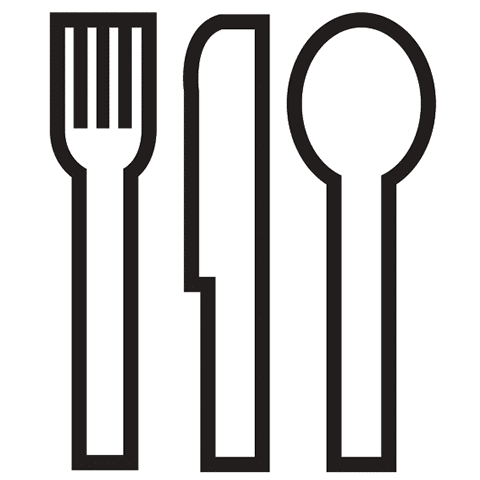
Cutlery
Our forks, knives and spoons are corn starch rather than plastic, and only used for event. For lunches, we use reusable cutlery.

Plates
Our plates are 100% compostable sugar cane fiber and are only used for events. For daily lunches, we use reusable plates.
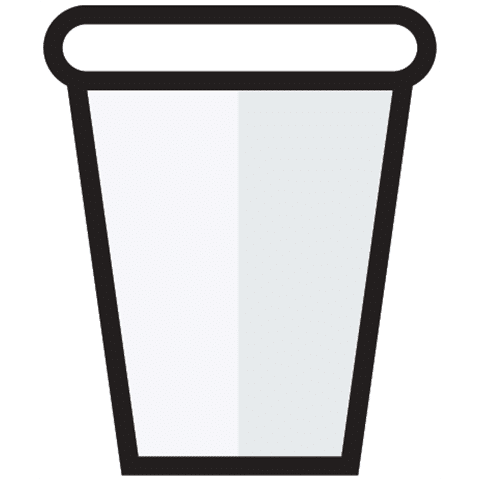
Cups
Our coffee cups are corn-based polyactic acid (PLA) and biodegradable. Our clear cups are corn resin - compostable, petroleum-free, renewable and biodegradable - and are only used for events. For daily lunches, we use reusable cups.
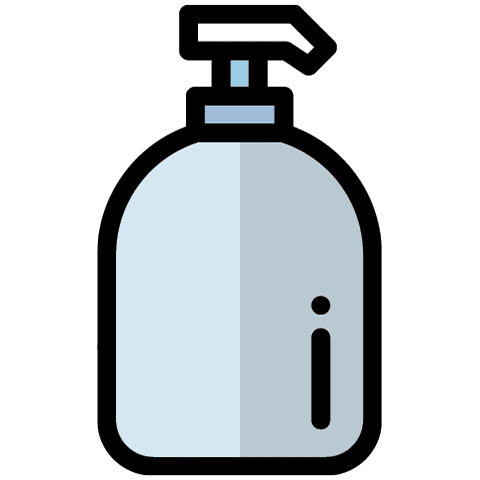
Soaps & Cleansers
Our hand and dish soaps are plant-based, contain no triclosan (poisonous in water) and are biodegradable. Our disinfectants contain no chlorine, acids or petroleum.

Coffee
Our disposable coffee pods are 100% compostable and made by Tayst, a company committed to being carbon neutral as well as supporting the communities that make the coffee.

Water
Our sensors and push handles reduce water use by 50%.
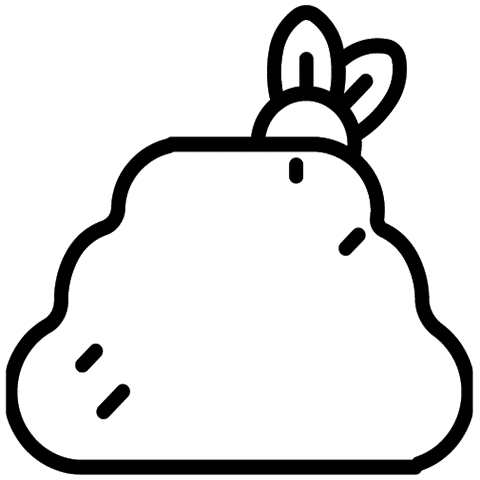
Garbage Bags
Our garbage bags are made of 50% recycled plastic.
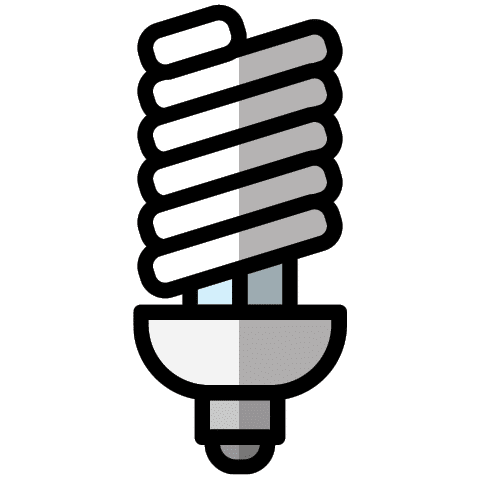
Lights
Our sensor and times reduce energy use by 50%.
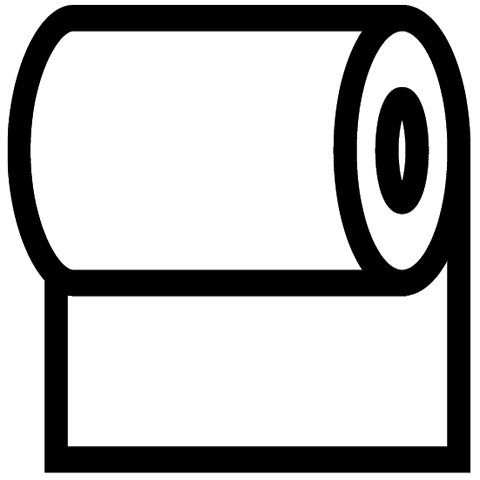
Paper Towels, Tissues, Wipes
Our paper towels are 60% recycled fiber (40% post-consumer). Our tissues are Green Seal Certified and 100% recycled content (90% post-consumer). Our wipes are compostable, plant-based and renewable.
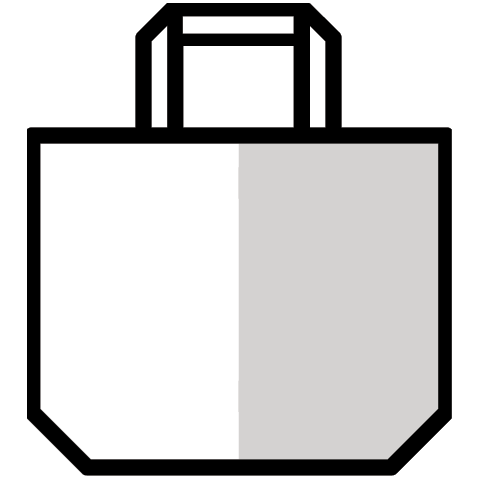
Tote Bags
Our tote bags are 55% hemp, which needs no pesticides, removes carbon from the soil and requires less water and land than cotton. They are made by Econscious, a company committed to reversing global warming and ensuring that every step of production is earth- and human-friendly.

Paper
All of our paper materials are locally produced in upstate New York by Mohawk, a company committed to sustainable and carbon neutral practices. This paper is 100% recycled content, processed without chlorine or harm to forests and Greal Seal Certified.
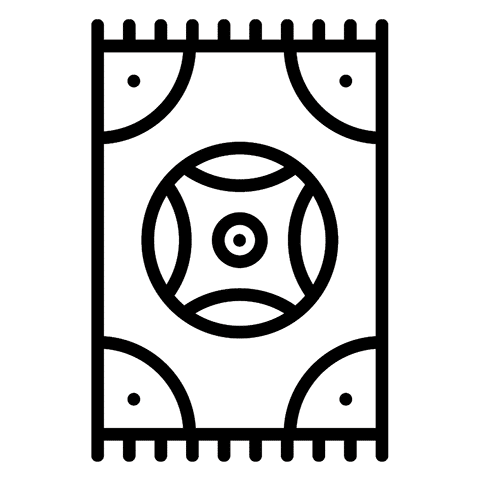
Carpet
Made by Interface, a company with a mission to reverse global warming through mindful design and manufacturing practices. Our carpets are 100% carbon neutral.
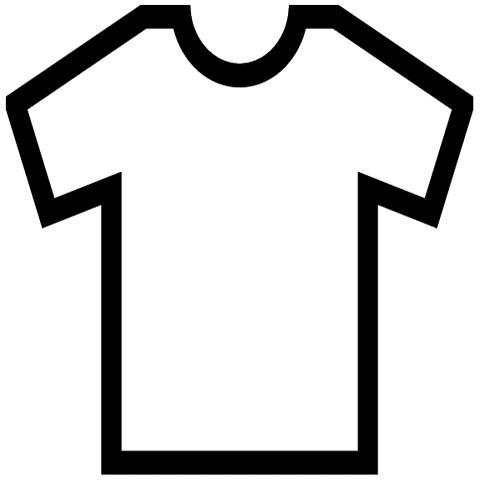
T-Shirts
Some of our t-shirts are 100% organic cotton, which doesn't use pesticides and requires less water and land. The rest of our shirts are partly made of organic cotton and 50% recycled plastic (RPET).
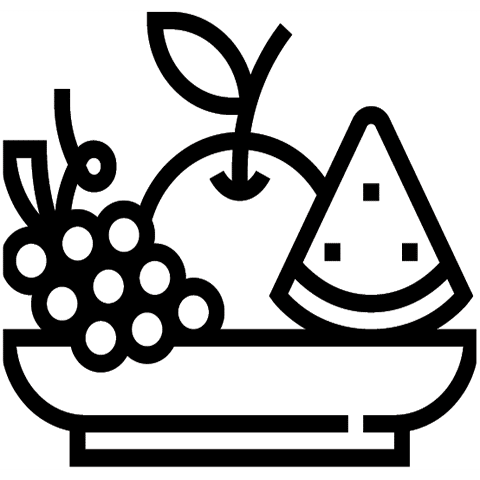
Food
All of our lunch leftovers are donated to Rescuing Leftover Cuisine, which then delivers the food to local homeless shelters.
Sustainable Printing
There are 6 symbols we look for when we make decisions about paper and printing:

- Recycling: These products are made from recycled material and are recyclable. As a school community, we aim to reduce waste and using recycled/recyclable products is part of that mission!
- Processed Chlorine Free (PCF): When recycled materials are processed with chlorine, the reactions produce toxic chemicals known as dioxins, which are an extremely potent carcinogen. We always used products that are PCF.
- Forest Stewardship Council (FSC) certified products have been monitored to have a sustainable chain of custody throughout the production process. This ensures forest management has been environmentally appropriate, socially beneficial, and economically viable.
- Green Seal is an independent, non-profit organization that provides a rigorous certification that products and servies meet credible and transparent environmental standards. For paper, this means it is made with a minimum of 30% post-consumer fiber and milling processes and packaging are environmentally responsible.
- Green-e signifies that production companies are using renewable energy to reduce the environmental impact of their electricity use.
- Carbon Neutral Plus is a commitment from Neenah Paper to not only continue their efforts to conserve the environment by reducing carbon emissions, but also to support conservation and biodiversity projects that protect and restore natural habitats.
The Companies We Use
- Econscious - tote bags
- Green Paper Products - plates, napkins, paper towels, etc
- Mohawk - paper products
- Tayst - coffee pods
Founder's Favorites
Dr. Jennifer Jones has collected some of her favorite sustainable projects and initiatives to share!
- Composting Locations in NYC
- Rescuing Leftover Cuisine
- "Climate Beneficial" Wool Hat from Carbon-Positive Sheep
- 8 Simple, Inexpensive Ways to Be a More Ethical Consumer in 2019
The More You Know
The Big Picture
- Climate Change - The weather problems we are having because of too much carbon. Too much carbon makes earth hot, and when earth gets too hot, glaciers melt and create floods. Too much heat causes storms, heat waves and droughts.
- Global Warming - The earth's temperature is rising because we are generating too much carbon. Earth is 1° hotter since 1988.
- Greenhouse Effect - Energy from the sun stays "trapped" by earth's atmosphere, warming our planet. We need this to keep from freezing, but because we are making too much carbon, the earth is getting too warm.
Oil Burns Into Carbon
- Fossil Fuels - There are three: crude oil (petroleum), coal, and natural gas. These are natural fuels formed over millions of years from organic matter such as plankton, plants, and other life forms.
- Petroleum - Petroleum is sometimes what we call crude oil (that black liquid under the ground) and sometimes refers to the things we make our of crude oil. When oil is processed, it produces carbon and pollutes the environment. Eco-friendly alternatives include: biodiesel, methanol, ethanol, butanol, batteries, hydrogen, vegetable oil, and propane.
Plastic
- PET - Polyethylene terephthalate is the chemical name for polyester, the world's most common type of plastic. PET is commonly found in plastic bottles, clothing, furniture, and carpeting. It takes three times more water to manufacture a PET bottle than the bottle itself can hold. And making PET bottles requires us to burn oil while making them and to transport them (oil makes carbon when burned). Hold up your bottle and imagine it 1/4 filled with oil. That's how much oil was needed.
- RPET - PET is the most commonly recycled plastic. RPET means recycled PET. Some of our t-shirts are made of RPET.
Chemicals That Harm Earth
- Chlorine - Chlorine is a chemical that kills creatures that live in water or soil.
- Triclosan - Triclosan was introduced in the U.S. in the 1970s as a pesticide and then became popularly used to kill germs. The U.S. is the only country that does not regulate its use. It is toxic for organisms that live in water.
Back to Earth
- Biodegradable - This means the item can break down (decompose) without oxygen within weeks or months. Biodegradable plastics aren't really biodegradable because they need oxygen to decompose, and landfills don't provide oxygen.
- Compostable - Breaks down quickly into natural materials and make soil better (so trees and plants can grow, which reduces carbon). But the item must be in a compost environment (not the garbage, recycling bin, or landfill).
- Plant-Based - The item is made with plants. If the item is 100% plant-based, then it is biodegradable and compostable and not harmful to the environment.
- Circular Economy - An alternative to our current economy (make-use-dispose) where we keep resources in use for as long as possible, get the maximum value from them while in use and recover and regenerate products and materials at the end of each service life.
Reducing Carbon
- Carbon Neutral - Total carbon produced is zero either because you are using options that don't produce carbon or you are doing something to offset the carbon you are making, such as generating renewable energy (like wind or solar) or planting trees (which convert carbon to nutrients and release more oxygen).
- Climate Positive - Removing carbon from the atmosphere.
Earth-Friendly Options
- Bioplastics - Plastics made from natural materials like plants or algae and that biodegrade.
- Corn Starch/Resin - Corn starch is used to make polyactic acid (PLA), a replacement for plastic that is compostable.
- Hemp - Hemp is a plant that reduces more carbon from the environment than most plants. It also makes the soil more nutrient rich. Hemp products are biodegradable, compostable, and renewable.
- Organic Cotton - Organic cotton requires no pesticides and uses substantially less water and land than regular cotton.
- Sugarcane Fiber - Sugarcane can replace fuel and has no negative impact on the environment when burned. It grows much faster than trees and can be used to make paper. Sugarcane fiber can be used to replace plastic and Styrofoam containers as well as disposable plates, napkins, bowls, and even toilet paper. It is 100% compostable (but not biodegradable).
Words to Live By
- Renewable - Something is renewable if using it doesn't deplete it, such as the power we can get from wind, the sun, waves and even manure (poop!).
- Sustainable - Acting sustainably means maintaining carbon neutral or carbon positive behavior and increasingly relying on renewable sources of energy.
- Recycled Content - Recycled content could mean that scrap material from manufacturing was used. Recycled does not necessarily man that an item was used and then reused.
- Post-Consumer - An item is "post-consumer" if it has been used and then recycled. Products made mostly of post-consumer content are helping keep that content out of landfills.

